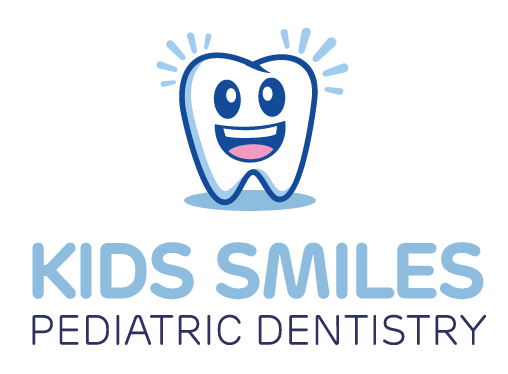Sensitive teeth in children can be a frustrating and painful experience for both the child and the parent. Often, parents may notice their child avoiding certain foods or not wanting to brush their teeth because it hurts. While this might seem like a minor inconvenience, sensitive teeth can actually signal larger underlying dental issues that, if left untreated, could affect your child’s long-term oral health.
At Kids Smiles Pediatric Dentistry in St. Louis, MO, we believe that every child deserves the best dental care, including treatment for tooth sensitivity. In this blog, we’ll discuss the causes of sensitive teeth, why it’s crucial to address this issue early, and the available treatments to ensure your child’s teeth remain healthy and pain-free.
What Causes Sensitive Teeth in Children?
Tooth sensitivity in children is often caused by one or more of the following factors:
- Tooth Decay: Cavities are one of the most common reasons for tooth sensitivity in kids. When a tooth decays, it exposes the sensitive inner layer (dentin) to external stimuli like hot or cold foods, which can lead to pain or discomfort.
- Enamel Erosion: Enamel is the protective outer layer of the teeth. It can wear down over time due to acidic foods and drinks, improper brushing techniques, or even teeth grinding (bruxism). Once the enamel erodes, the dentin underneath is exposed, making the teeth more sensitive.
- Gum Recession: While more common in adults, children who suffer from poor oral hygiene, aggressive brushing, or gum disease can experience receding gums. This exposes the roots of the teeth, which are highly sensitive to temperature changes and sugary foods.
- New Teeth Erupting: As your child’s permanent teeth start to come in, they may experience temporary sensitivity as the gums adjust to the new teeth. This is typically short-term but can be uncomfortable for your child.
Why It’s Important to Treat Sensitive Teeth Early
Some parents might assume that since baby teeth are temporary, there’s no urgent need to treat sensitivity or cavities. However, this couldn’t be further from the truth. Here’s why addressing sensitive teeth early is critical for your child’s oral health:
1. Preventing Tooth Decay from Progressing
Sensitive teeth can be an early sign of tooth decay. If cavities are left untreated, they will continue to worsen, leading to more significant pain, infection, or even tooth loss. Filling cavities early stops the decay from spreading and prevents more extensive dental procedures in the future, such as root canals or extractions.
2. Avoiding Misalignment in Permanent Teeth
Baby teeth serve an essential function as placeholders for permanent teeth. When a baby tooth is lost prematurely due to decay or damage, it can lead to misalignment of the permanent teeth, causing crowding or gaps that may require orthodontic treatment later on. By treating cavities and sensitive teeth early, you help ensure your child’s permanent teeth grow in properly.
3. Preserving Your Child’s Confidence and Well-Being
Children who experience ongoing dental pain or sensitivity may be hesitant to eat, speak, or smile, which can affect their self-confidence. Additionally, untreated dental problems can impact their ability to chew properly and maintain a balanced diet. By addressing sensitivity and treating any underlying issues, you’re helping your child avoid discomfort and fostering a positive relationship with their dental care.
4. Promoting Proper Oral Hygiene Habits
Children who experience pain when brushing may start to avoid it altogether. This can result in poor oral hygiene and increase the risk of further cavities or gum disease. When sensitive teeth are treated early, your child can return to a regular brushing and flossing routine without discomfort, promoting better long-term oral health.
Treatment Options for Sensitive Teeth in Children
At Kids Smiles Pediatric Dentistry, we offer a variety of treatments to alleviate your child’s tooth sensitivity and address the root cause of the issue:
1. Fillings for Cavities
If tooth decay is causing your child’s sensitivity, a filling may be the best solution. This involves removing the decayed portion of the tooth and replacing it with a durable, tooth-colored material. Fillings not only stop the decay from spreading but also help to protect the sensitive inner layers of the tooth.
2. Fluoride Treatments
For children with weakened enamel, fluoride treatments can help strengthen the teeth and reduce sensitivity. Fluoride is a natural mineral that helps to rebuild the tooth’s enamel, protecting it from further erosion and decay. This treatment is simple, painless, and highly effective at preventing future cavities.
3. Sealants
Sealants are thin, protective coatings applied to the chewing surfaces of the back teeth. They act as a barrier, preventing food and bacteria from getting trapped in the grooves of the teeth and causing decay. Sealants are especially beneficial for children prone to cavities and can prevent tooth sensitivity in the future.
When to See a Pediatric Dentist in St. Louis, MO
If your child is complaining of sensitive teeth or avoiding brushing due to discomfort, it’s important to schedule an appointment with a pediatric dentist as soon as possible. Early intervention can prevent more serious dental problems down the road and keep your child’s smile healthy and pain-free.
At Kids Smiles Pediatric Dentistry, Dr. Kelly Jobe and her experienced team are here to help your child feel comfortable and cared for every step of the way. Contact us today to schedule an appointment and find out how we can treat your child’s sensitive teeth with gentle, effective care.

